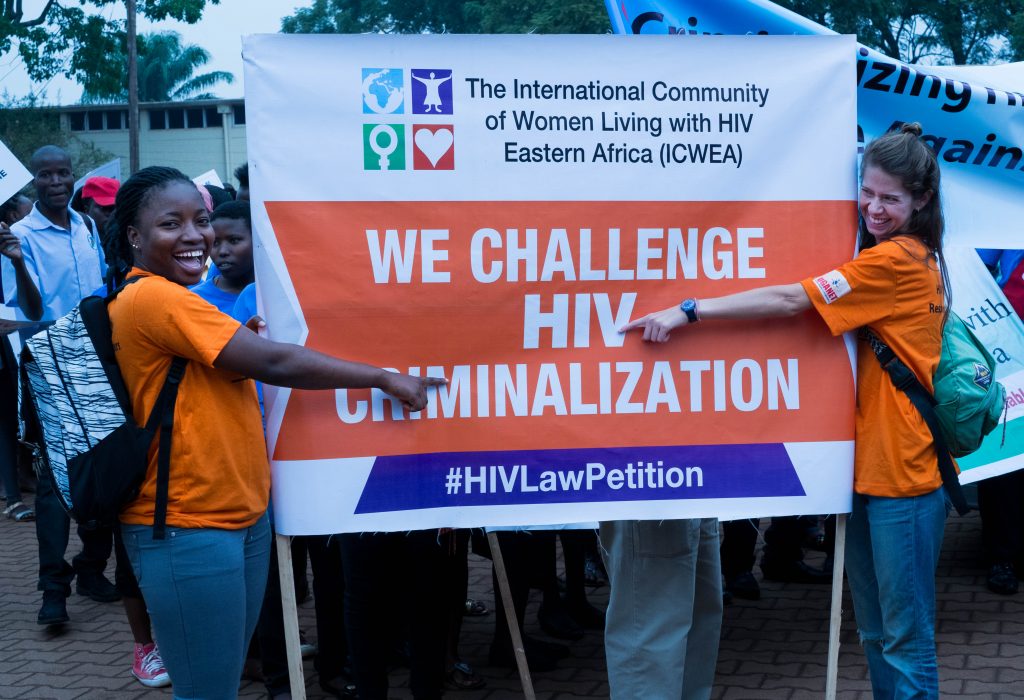
Today, The International Community of Women Living with HIV Eastern Africa (ICWEA) joins a group of over 40 Civil Society Organizations led by Uganda Law Network on Law, Ethics and HIV/AIDS (Uganet) in a solidarity walk against contentious clauses in the HIV and AIDS Prevention and Control Act.
While noticing that the Act has good in parts, it also has some clauses that have the potential of promoting discrimination within society and undo decades’ work put into the fights against HIV&AIDS.
We protest because these clauses criminalise HIV and criminalization of HIV harms women. As it is now, knowledge of one’s HIV status can make you guilty with intentional transmission of the disease and this discourages people from being tested for fear of knowing their status and the likely consequences.
About the harmful clauses
Section 18(e) of the Act violates people’s privacy by allowing a health worker to disclose a patient’s HIV Status to those that are perceived to be in close relationship with the patient.
Forced disclosure by a third party raises a legality question, and infringes upon the patient’s right to privacy. With such circumstances occurring, no one will want to get tested because nobody wishes to be in such a panic all the time, wondering if their status will be revealed.
The reluctance to testing takes us many steps back in the fight against HIV. This also means that a person cannot enroll on treatment or take caution against infection if they don’t know their status.
The Act also criminalizes HIV transmission, attempted transmission, and behaviour that might result in transmission by those with a known HIV status. Section 41 talks about intended transmission, an overly broad statement, which people may take advantage of to punish others unfairly. The law discourages people from testing and finding out their HIV status and these discriminating laws are especially harmful to those already living with HIV especially women who make up the majority number of people living with HIV.
Pregnant women who discover they are HIV positive while pregnant are already under pressure to disclose their status to their spouses before they are prepared to and yet this could be considered intentional transmission if a health worker decide to tell the spouse before she does.
The contentious clauses are contrary to the best practices that have been implemented by civil society organizations and will tremendously reverse the progress achieved in reducing HIV prevalence within Uganda.
Given that women still carry most of the HIV burden, we worry about how much heavier this burden would become for us if implemented. And for these reasons, ICWEA stand in solidarity with civil society organizations against the harmful clauses of the Act and demand that they are amended.
About the Act: HIV and AIDS Prevention and Control Act was passed on Tuesday 13th May 2014, by Parliament. The law targets and discriminates against women, who will be discouraged from testing and treatment. The law was widely criticized around the world for harmful components.



